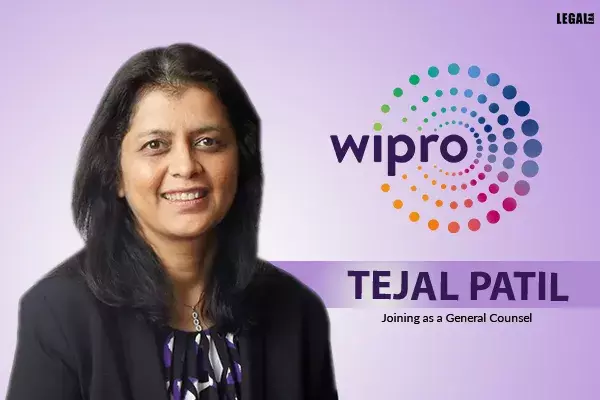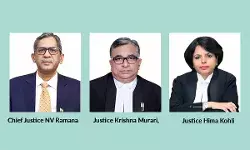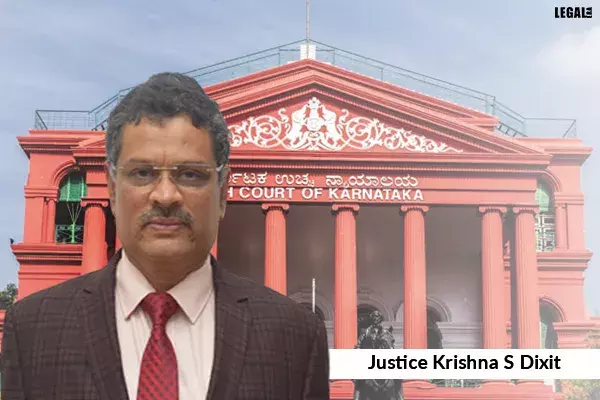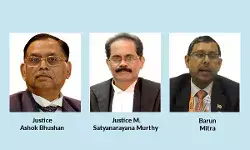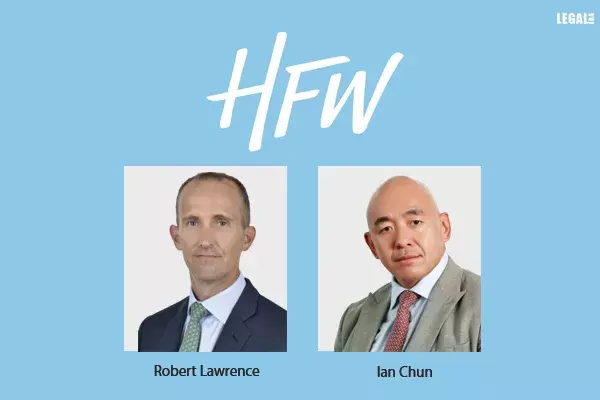- Home
- News
- Articles+
- ABOUT THE LAW
- AWARDS & ACCOLADES
- Aerospace
- Agriculture
- Alternate Dispute Resolution
- Banking and Finance
- Bankruptcy
- Book Review
- Bribery & Corruption
- Commercial Litigation
- Competition Law
- Conference Reports
- Consumer Products
- Contract
- Corporate Governance
- Corporate Law
- Covid-19
- Cryptocurrency
- Cybersecurity
- Data Protection
- Defence
- Digital Economy
- E-commerce
- Employment Law
- Energy and Natural Resources
- Entertainment and Sports Law
- Environmental Law
- FDI
- Food and Beverage
- Health Care
- IBC Diaries
- Insurance Law
- Intellectual Property
- International Law
- Labour Laws
- Litigation
- Litigation Funding
- Manufacturing
- Mergers & Acquisitions
- NFTs
- Privacy
- Private Equity
- Project Finance
- Real Estate
- Risk and Compliance
- Technology Media and Telecom
- Tributes
- Zoom In
- Take On Board
- In Focus
- Law & Policy and Regulation
- IP & Tech Era
- Viewpoint
- Arbitration & Mediation
- Tax
- Student Corner
- ESG
- Gaming
- Inclusion & Diversity
- Law Firms
- In-House
- Rankings
- E-Magazine
- Legal Era TV
- Events
- News
- Articles
- ABOUT THE LAW
- AWARDS & ACCOLADES
- Aerospace
- Agriculture
- Alternate Dispute Resolution
- Banking and Finance
- Bankruptcy
- Book Review
- Bribery & Corruption
- Commercial Litigation
- Competition Law
- Conference Reports
- Consumer Products
- Contract
- Corporate Governance
- Corporate Law
- Covid-19
- Cryptocurrency
- Cybersecurity
- Data Protection
- Defence
- Digital Economy
- E-commerce
- Employment Law
- Energy and Natural Resources
- Entertainment and Sports Law
- Environmental Law
- FDI
- Food and Beverage
- Health Care
- IBC Diaries
- Insurance Law
- Intellectual Property
- International Law
- Labour Laws
- Litigation
- Litigation Funding
- Manufacturing
- Mergers & Acquisitions
- NFTs
- Privacy
- Private Equity
- Project Finance
- Real Estate
- Risk and Compliance
- Technology Media and Telecom
- Tributes
- Zoom In
- Take On Board
- In Focus
- Law & Policy and Regulation
- IP & Tech Era
- Viewpoint
- Arbitration & Mediation
- Tax
- Student Corner
- ESG
- Gaming
- Inclusion & Diversity
- Law Firms
- In-House
- Rankings
- E-Magazine
- Legal Era TV
- Events
Supreme Court rules on scope for arbitrary application under PMLA

Supreme Court rules on scope for arbitrary application under PMLA
The Supreme Court has held that the ratio of the verdict about Section 8(4) of the Prevention of Money Laundering Act (PMLA), 2002, has left scope for arbitrary application. This seems to be a sign of judicial disagreement with the court's recent judgment upholding the validity of PMLA.
A bench of Chief Justice NV Ramana, Justice Krishna Murari, and Justice Hima Kohli said that the ratio concerning Section 8(4) laid down by the PMLA judgment in Vijay Madanlal Choudary & Ors vs Union of India would need further expounding to prevent arbitrary application.
The court stated, "This court dealt with confiscation proceedings under Section 8 of PMLA and limited the application of Section 8(4) concerning interim possession by the authority before the conclusion of the final trial to exceptional cases. The court distinguished the earlier cases in view of the unique scheme under the impugned legislation therein. Having perused the said judgment, we are of the opinion that the aforesaid ratio requires further expounding in an appropriate case, without which, much scope is left for arbitrary application."
The observations regarding the PMLA verdict were made in a judgment striking down various provisions of the Benami Transactions (Prohibition) Act of 1988 and the 2016 amendments to the 1988 Act as unconstitutional.
The PMLA judgment was rendered in July by a bench of Justice AM Khanwilkar, Justice Dinesh Maheshwari, and Justice CT Ravikumar. The court upheld the validity of various provisions of the PMLA including Section 8(4, which empowered the Enforcement Directorate (ED) to take possession of the attached property at the stage of confirmation of provisional attachment made by the adjudicating authority (AA).
While upholding the provision, the court had cautioned that the provision ought to be invoked only in exceptional situations. In the judgment, the court said, "Merely because the provisional attachment order passed under Section 5(1) is confirmed, it does not follow that the property stands confiscated; and until an order of confiscation is formally passed, there is no reason to hasten the process of taking possession of such a property."
The court observed that once the possession of the property was taken in terms of sub-section (4) and the finding in favor of the person was rendered by the special court, thereafter, and during the interregnum if the property changes hands and title vest in some third party, it would result in civil consequences even to the third party.
The judgment further ruled, "It is certainly avoidable unless it is absolutely necessary in the peculiar facts of a particular case so as to invoke the option available under sub-section (4) of Section 8."
The bench stated that it was possible that the special court in a trial concerning a money-laundering offence may eventually decide the issue in favor of the person in possession of the property as not being proceeds of crime. But before the special court passes such an order, it would be a case of a serious miscarriage of justice, if not an abuse of process, to take physical possession of the property held by such a person."
The short legal question before the Court for consideration was whether the Prohibition of Benami Property Transactions Act, 1988 [for short 'the 1988 Act'], as amended by the Benami Transactions (Prohibition) Amendment Act, 2016 [for short the '2016 Act'] has a prospective effect.
The Top Court concluded:
a) Section 3(2) of the unamended 1988 Act is declared as unconstitutional for being manifestly arbitrary. Accordingly, Section 3(2) of the 2016 Act is also unconstitutional as it is violative of Article 20(1) of the Constitution.
b) In rem forfeiture provision under Section 5 of the unamended Act of 1988, prior to the 2016 Amendment Act, was unconstitutional for being manifestly arbitrary.
c) The 2016 Amendment Act was not merely procedural, rather, prescribed substantive provisions.
d) In rem forfeiture provision under Section 5 of the 2016 Act, being punitive in nature, can only be applied prospectively and not retroactively.
e) Concerned authorities cannot initiate or continue criminal prosecution or confiscation proceedings for transactions entered into prior to the coming into force of the 2016 Act, viz., 25.10.2016. As a consequence of the above declaration, all such prosecutions or confiscation proceedings shall stand quashed.
f) As this Court is not concerned with the constitutionality of such independent forfeiture proceedings contemplated under the 2016 Amendment Act on the other grounds, the aforesaid questions are left open to be adjudicated in appropriate proceedings.
The bench noted that it would serve no purpose by hastening the process of taking possession of the property and then returning the same back to the person later pursuant to the order passed by the court of competent jurisdiction.
However, the new bench of the top court stated that the safeguards might not be sufficient and required further elucidation.

